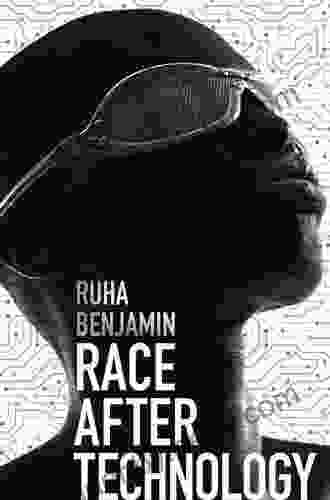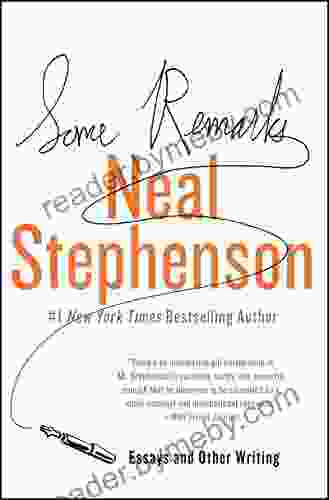Abolish Racist Systems with Abolitionist Tools For The New Jim Code

In her groundbreaking book, Abolitionist Tools For The New Jim Code, author and activist Mariame Kaba offers a powerful and practical guide to dismantling racist systems. Drawing on years of experience as an organizer and abolitionist, Kaba provides a clear and concise framework for understanding the ways in which racism operates in the United States today, and offers a toolkit of strategies for dismantling these systems.
4.7 out of 5
| Language | : | English |
| File size | : | 1407 KB |
| Text-to-Speech | : | Enabled |
| Screen Reader | : | Supported |
| Enhanced typesetting | : | Enabled |
| Word Wise | : | Enabled |
| Print length | : | 258 pages |
| Lending | : | Enabled |
The New Jim Code is a term coined by Michelle Alexander to describe the ways in which mass incarceration, voter suppression, and other forms of systemic racism have created a new system of racial control in the United States. This system is designed to maintain white supremacy and to keep Black and brown people in a state of poverty and oppression.
Kaba argues that the New Jim Code is not simply a new form of racism, but rather a continuation of the long history of white supremacy in the United States. She traces the roots of the New Jim Code back to the era of slavery and Jim Crow, and shows how these systems have been adapted and updated to meet the needs of the 21st century.
Kaba's book is a must-read for anyone who wants to understand the true nature of racism in the United States today, and who is committed to fighting for racial justice. She provides a clear and concise framework for understanding the New Jim Code, and offers a toolkit of strategies for dismantling these systems.
The Abolitionist Framework
Kaba's abolitionist framework is based on the belief that all people are worthy of freedom and dignity, and that all systems of oppression must be dismantled. She argues that the goal of abolition is not simply to reform the criminal justice system, but to create a new society in which all people are free and equal.
Kaba's abolitionist framework consists of four key principles:
- Dismantle the prison industrial complex. The prison industrial complex is a system of mass incarceration that disproportionately impacts Black and brown people. It is a system that is designed to control and profit from the suffering of marginalized communities.
- Invest in communities. Instead of investing in prisons, we should invest in our communities. We need to invest in education, healthcare, housing, and other essential services that will help to create a more just and equitable society.
- Build power. We need to build power in our communities so that we can challenge the systems of oppression that are holding us back. We need to organize, mobilize, and fight for our rights.
- Practice self-determination. We need to practice self-determination in our own lives and in our communities. We need to make our own decisions about our lives and our futures, and we need to hold ourselves accountable for our actions.
The Abolitionist Toolkit
In addition to her abolitionist framework, Kaba also provides a toolkit of strategies for dismantling racist systems. These strategies include:
- Divestment. We can divest from the prison industrial complex by refusing to invest in companies that profit from mass incarceration, and by supporting organizations that are working to dismantle the system.
- Boycott. We can boycott businesses that support the prison industrial complex, and we can support businesses that are committed to social justice.
- Protest. We can protest against the prison industrial complex and other forms of systemic racism. We can march, rally, and make our voices heard.
- Education. We can educate ourselves about the prison industrial complex and other forms of systemic racism. We can read books, watch documentaries, and attend workshops.
- Organizing. We can organize our communities to fight against the prison industrial complex and other forms of systemic racism. We can build coalitions, create campaigns, and demand change.
Abolitionist Tools For The New Jim Code is a powerful and practical guide to dismantling racist systems. Mariame Kaba provides a clear and concise framework for understanding the New Jim Code, and offers a toolkit of strategies for dismantling these systems. This book is a must-read for anyone who wants to understand the true nature of racism in the United States today, and who is committed to fighting for racial justice.
To learn more about Mariame Kaba and her work, please visit her website at www.mariamekaba.com.
4.7 out of 5
| Language | : | English |
| File size | : | 1407 KB |
| Text-to-Speech | : | Enabled |
| Screen Reader | : | Supported |
| Enhanced typesetting | : | Enabled |
| Word Wise | : | Enabled |
| Print length | : | 258 pages |
| Lending | : | Enabled |
Do you want to contribute by writing guest posts on this blog?
Please contact us and send us a resume of previous articles that you have written.
 Book
Book Novel
Novel Page
Page Chapter
Chapter Text
Text Story
Story Genre
Genre Reader
Reader Library
Library Paperback
Paperback E-book
E-book Magazine
Magazine Newspaper
Newspaper Paragraph
Paragraph Sentence
Sentence Bookmark
Bookmark Shelf
Shelf Glossary
Glossary Bibliography
Bibliography Foreword
Foreword Preface
Preface Synopsis
Synopsis Annotation
Annotation Footnote
Footnote Manuscript
Manuscript Scroll
Scroll Codex
Codex Tome
Tome Bestseller
Bestseller Classics
Classics Library card
Library card Narrative
Narrative Biography
Biography Autobiography
Autobiography Memoir
Memoir Reference
Reference Encyclopedia
Encyclopedia Misba
Misba Rod Khleif
Rod Khleif Mari Schuh
Mari Schuh Kris Wilder
Kris Wilder Ralph Zuranski
Ralph Zuranski Lukas Thao
Lukas Thao Matthew Syed
Matthew Syed Timo Holmquist
Timo Holmquist M Kevin Davis
M Kevin Davis Todd Olson
Todd Olson Stephen Hay
Stephen Hay Nina Manning
Nina Manning Pat Mora
Pat Mora Nato Thompson
Nato Thompson William G Borchert
William G Borchert Matthew Sturm
Matthew Sturm Robert Peal
Robert Peal Mary Nethery
Mary Nethery Swapna Reddy
Swapna Reddy Steven Satterfield
Steven Satterfield
Light bulbAdvertise smarter! Our strategic ad space ensures maximum exposure. Reserve your spot today!

 Bobby HowardUnveil the Enchanting Realm of The Shadow Wand: A Captivating Journey into...
Bobby HowardUnveil the Enchanting Realm of The Shadow Wand: A Captivating Journey into...
 Quentin PowellUnlock Your Rhit Certification Success with Our Ultimate Flashcard Study...
Quentin PowellUnlock Your Rhit Certification Success with Our Ultimate Flashcard Study... Manuel ButlerFollow ·16.7k
Manuel ButlerFollow ·16.7k Ivan TurgenevFollow ·11.3k
Ivan TurgenevFollow ·11.3k Italo CalvinoFollow ·14.8k
Italo CalvinoFollow ·14.8k Dan HendersonFollow ·8.4k
Dan HendersonFollow ·8.4k John SteinbeckFollow ·10.6k
John SteinbeckFollow ·10.6k Gene PowellFollow ·4.2k
Gene PowellFollow ·4.2k Aaron BrooksFollow ·13.2k
Aaron BrooksFollow ·13.2k John Dos PassosFollow ·17.5k
John Dos PassosFollow ·17.5k
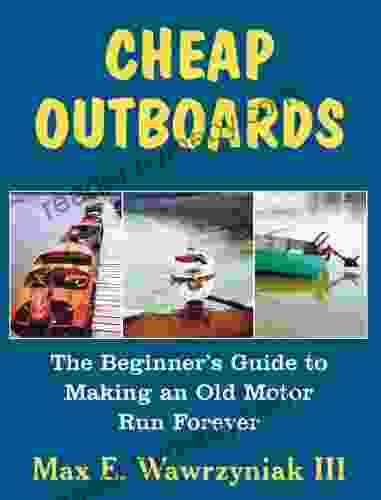
 Wayne Carter
Wayne CarterThe Beginner's Guide to Making an Old Motor Run Forever
If you're like most...

 Deacon Bell
Deacon BellNepali Adventure: Kings and Elephant Drivers,...
In the heart of the...

 Carlos Drummond
Carlos DrummondThe Romantic Revolution: A Journey Through History and...
Unveiling the...
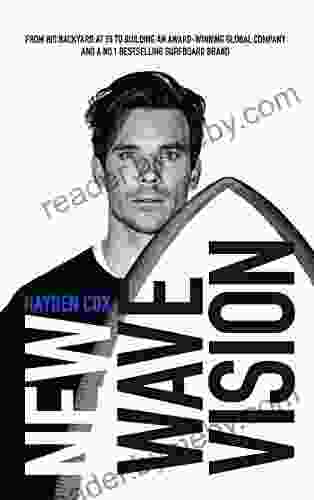
 Kazuo Ishiguro
Kazuo IshiguroUnlock Your Inner Innovator: Dive into the New Wave...
Embark on a Transformative Journey of...
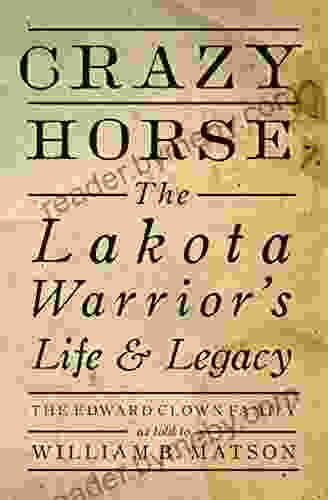
 William Golding
William GoldingCrazy Horse: The Lakota Warrior's Life and Legacy
In the annals of Native...

 Hector Blair
Hector BlairMildred and Richard Loving: The Inspiring Story of...
Mildred and Richard Loving were an...
4.7 out of 5
| Language | : | English |
| File size | : | 1407 KB |
| Text-to-Speech | : | Enabled |
| Screen Reader | : | Supported |
| Enhanced typesetting | : | Enabled |
| Word Wise | : | Enabled |
| Print length | : | 258 pages |
| Lending | : | Enabled |


